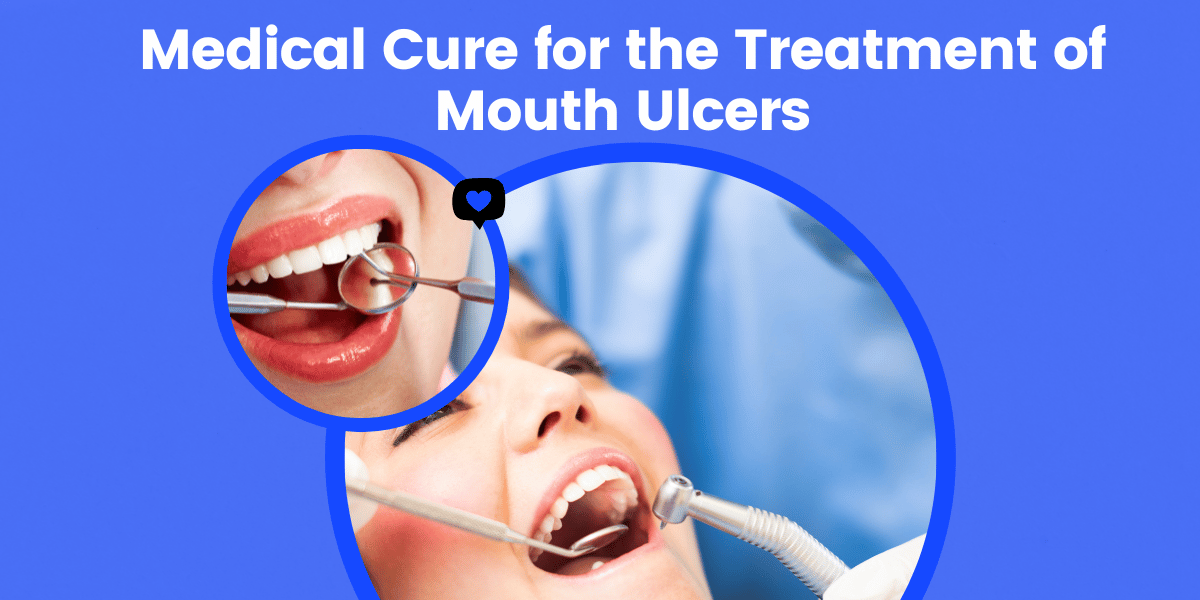Medical Cure for the Treatment of Mouth Ulcers
Effective Medical Approaches to Alleviate Mouth Ulcer Discomfort
Effective Medical Treatments for Mouth Ulcers: A Path to Relief
Mouth ulcers, those bothersome sores that appear within the oral cavity, can create discomfort and hinder everyday activities like eating and speaking. Fortunately, medical science provides an array of treatments to alleviate pain, accelerate healing, and restore your oral well-being. In this article, we’ll delve into the world of medical treatments for mouth ulcers, exploring various options that offer relief and rejuvenation.

1. Topical Analgesics and Antiseptics
One of the most common treatments for mouth ulcers involves using topical analgesics and antiseptics. Over-the-counter ointments or gels containing ingredients like benzocaine or hydrogen peroxide can help numb the area, providing temporary relief from pain and discomfort. Additionally, antiseptic rinses can help keep the ulcer clean and prevent infection, supporting the natural healing process.
2. Corticosteroid Ointments or Gels
Corticosteroid ointments or gels are another effective medical treatment for mouth ulcers, especially for larger or more persistent sores. These products work by reducing inflammation and suppressing the immune response in the affected area. By doing so, they alleviate pain, accelerate healing, and minimize the risk of complications.
3. Oral Rinses and Mouthwashes
Over-the-counter or prescription oral rinses and mouthwashes containing ingredients like hydrogen peroxide, chlorhexidine, or saline can help cleanse the ulcer, maintain oral hygiene, and promote healing. These solutions can also reduce irritation and discomfort associated with mouth ulcers.
4. Over-the-Counter Pain Relievers
Non-prescription pain relievers, such as acetaminophen or ibuprofen, can provide temporary relief from the discomfort of mouth ulcers. These medications help alleviate pain and reduce inflammation, allowing you to carry on with your daily activities while the ulcer heals.
5. Prescription Medications
In cases of severe or recurrent mouth ulcers, a healthcare professional may prescribe medications such as corticosteroid mouth rinses or immunomodulatory drugs. These medications target the underlying causes of ulcers and can significantly reduce their occurrence and severity.
6. Laser Therapy
Laser therapy is an emerging treatment option for mouth ulcers. It involves using low-level lasers to promote healing, reduce inflammation, and alleviate pain. While more research is needed to establish its effectiveness, some individuals have reported positive outcomes with this approach.
7. Nutritional Supplements
Certain nutritional deficiencies, such as deficiencies in vitamin B12, folic acid, or iron, can contribute to the development of mouth ulcers. In such cases, supplements prescribed by a healthcare professional can address these deficiencies and aid in the healing process.
8. Lifestyle Modifications
Making certain lifestyle changes can complement medical treatments for mouth ulcers. Avoiding spicy, acidic, or abrasive foods can prevent irritation, and practicing good oral hygiene can keep the area clean and minimize the risk of infection.
Mouth ulcers need not disrupt your daily life, as medical treatments offer effective ways to manage their discomfort and promote healing. Whether you opt for topical solutions, corticosteroid treatments, or other medical interventions, seeking advice from a healthcare professional is essential to determine the most suitable approach for your condition. By combining medical treatments with proper oral hygiene and lifestyle modifications, you can pave the way to a swift recovery and enjoy a pain-free oral experience once again.




